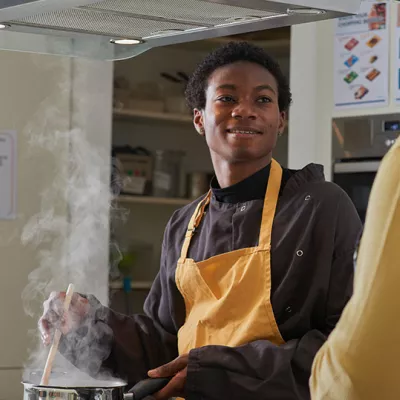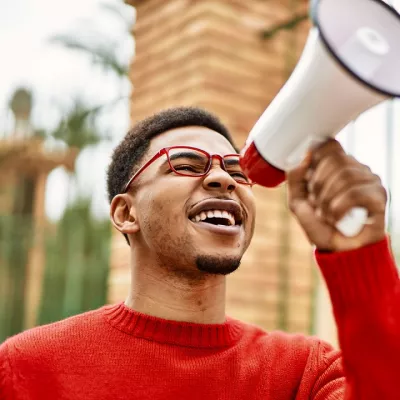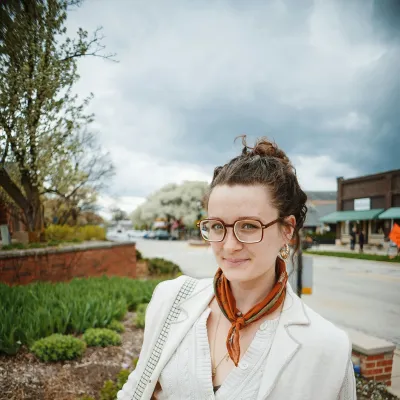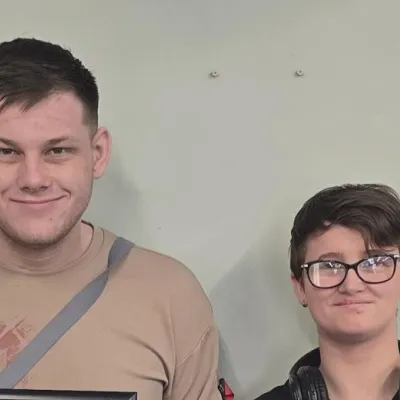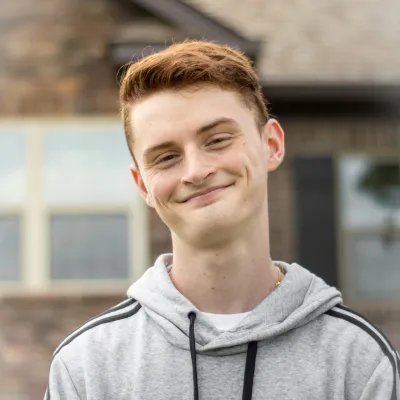Many of us will have needed legal advice at some point in our lives. We might have experienced an issue at work or wanted to know about our consumer rights. If we’re not sure if something is right, fair or legal, we would look for someone for advice.
The legal landscape
It's commonly known that "paid for" legal advice can become expensive. Many of the young people who live with Centrepoint don't have the financial means to pay for any legal advice – meaning they often go without.
As far back as 1949, the concept of Legal Aid was introduced to help meet the costs of legal advice for those who could not afford to pay for it at a cost of around £1.6 billion per year. In its early days the reach of Legal Aid in the UK was almost universal with over 80% over people eligible to apply, and over time was extended to most civil and family issues, as well as crime.
But with austerity measures and cuts over time, Legal Aid has gone the way of other free services with eligibility dropping and its scope restricted. Eligibility is currently estimated to be under 25%, and Legal Aid no longer covers the majority of civil and family matters.
Influenced by the growth of "neighbourhood law offices" in the United States, the 1970s saw the beginning of the Law Centre movement in the UK. These Law Centres specialised in the areas of law most relevant to disadvantaged communities and looked to fill the increasing gaps in Legal Aid.
However, Law Centres are funded by a mix of Legal Aid contracts, local authority funding, and corporate and charity donations. Legal Aid and local authority cuts hit Law Centres particularly hard, and it's estimated 20% of all Law Centres closed between 2012-2017.
Free advice and representation provided by volunteer lawyers is now often the only means of obtaining access to justice for people who are unable to pay for legal advice and are not eligible for Legal Aid. This concept is known as "pro bono", however this can't be a substitute for a properly funded Legal Aid system.
Access to justice for young people
Youth Access, a charity championing advice and counselling for young people estimated that each year 16–24-year-olds will experience at least 2.3 million rights-related problems requiring advice. However, fewer than half will manage to obtain advice.
Its latest research, which analyses data from The Ministry of Justice's Legal Problem Resolution Survey 2014-15, reveals that 18-24 year-olds access to justice has nosedived since the start of Legal Aid cuts. Even though young adults experience over 5 million complex legal problems each year, the MOJ's own survey could only identify one young person from a sample of 10,000 adults who had obtained advice funded by Legal Aid.
Citizens Advice also estimate that for every £1 saved by cuts to legal aid, the government will spend £8 dealing with the resulting social, judicial and health issues.
So how does Centrepoint help bridge this gap?
Thanks to relationships with external partners, we can now offer our young people access to legal advice on a range of issues. If a young person feels they have been treated unfairly or wants to get clued up on their rights, we can link them with a lawyer.
The lawyers we work with provide their professional advice for free to those in need, ensuring that even the most disadvantaged in society can enforce their rights.
Some appointments are weekly, some monthly and advice is available face-to-face, by video conference or over the phone. Young people can access the advice at a time that suits them, in a location where they feel comfortable and with the support of their Centrepoint keyworker.
Why is it important?
When young people need legal advice, it’s usually because they’re in a situation they haven’t faced before and more often than not, their situation requires urgent attention at that moment in time. The legal advice offer at Centrepoint is about having someone who will listen and getting information the young people can trust. By getting advice young people are learning about their rights – information they will carry with them through life. It’s part of growing as a person and being better equipped to deal with life’s challenges in the future.
What issues have the clinic advised on?
Employment issues come up a lot. Centrepoint young people are supported into work. We see cases where young people’s employment has been terminated with little or no explanation. Unpaid wages are also common. We’ve all heard about the rise in zero hour contracts and part time work. This can mean that young people are in vulnerable or unsustainable employment and can be exploited or susceptible to financial abuse. If things don’t work out, our legal services mean there is someone to ask “Has my employer acted lawfully?” and if not “What can I do about it?”.
Housing benefit is also a big topic. Young people seeking work or on low pay can claim housing benefit to help with their housing costs.
There are lots of opportunities for things to go wrong. Any changes to a young person’s circumstances must be notified to the local authority. A breakdown in communication can mean this vital help towards living costs is withdrawn.
Legal advisers step in when our young people and staff have, despite their best efforts, been unable to resolve an issue. This recovers lost income for young people and Centrepoint. For young people to positively move on from Centrepoint, it’s essential they demonstrate they can manage their finances.
Consumer issues, terms and conditions and contracts are also fairly common topics. Phone contracts, bills and memberships are all accompanied by page after page of small print. Legal advisers can help unpick and explain the details. Sometimes young people are steadfastly pursued for money they aren’t even liable to pay.
Immigration advice is an important area of law for some of our young people. It's extremely complicated, highly regulated and in most cases the areas that are subject to legal aid are very narrow in scope, so sourcing free advice can be very difficult. Some of our young people have come to the UK having fled their home country, often under the age of 18 and alone. It's vital they understand their rights in the UK if they are ever to have a chance of living independently. Perhaps surprisingly, it’s also crucial for some young people who have lived nearly their whole lives in the UK, but don’t hold a British passport. Some young people don’t know what their rights are until they come to exercise them – and sometimes this can be too late.
Family law advice is something we have introduced recently, again following research with our Service staff. Advice can cover issues like fathers’ rights or getting access to see siblings. As these are sensitive and emotive issues, advice is always given with a Centrepoint support worker present.
What do our staff and young people think?
Here are some of the comments from our staff and young people about the Connect Legal Advice service.
“I’ve seen young people emerge from a Connect session more confident, more sure of themselves, less anxious, than when they went in.”
“Legal aid is so hard to come by and other services are so over used that it is impossible to even get an appointment or a chance to speak on the phone. The legal advice has been a huge help for both young people and staff. They are exceptional and very informative through out the process.”
“A lot of my young people come to Centrepoint with legal issues but they’re scared of it, they don’t know how to deal with it so it stops them going to get the advice and support they need. The clinic enables us to bring that into their support environment and get the advice they need at the right time.”
“She said she was pleased to have come, and particularly said that [the advisers] were really friendly so thank you to them for putting her at ease when talking about such a sensitive topic.”
“The advice was explained in a way that we both understood…”
Do you know a young person who could benefit from knowing their rights?
Encourage them to research, question and get informed. It’s not OK to be denied access to your rights because advice is scarce or unaffordable.
Here are some organisations that may be helpful:
-
Citizens Advice Bureau has a page dedicated to young people’s rights
-
Law for Life ensures people have the knowledge, confidence and skills needed to secure access to justice
-
LawStuff enables you to search by age to see how the law applies to children and young people
-
Youth Access helps you find local services for young people
-
Youth Legal has a series of downloadable factsheets
Acknowledgements
Through accessing advice young people allow us into very private parts of their life. You get to better understand their situations, the challenges they face and of course, how amazing they are.
Without willing legal professionals to work alongside Centrepoint, it’s unlikely these young people would get any reliable advice at all.
Centrepoint would like to thank all our partners who have either contributed lawyers, their time, resources or funding for the valuable service they provide. Their work really makes a difference.
- Allen & Overy
- Coram Childrens’ Legal Centre
- Fourteen Chambers
- Goldman Sachs
- Herbert Smith Freehills LLP
- LawWorks


